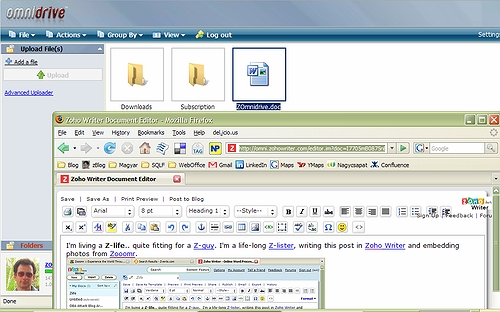 It’s not everyday that a Google product announcement goes largely unnoticed. That’s exactly what happened yesterday when Google announced a “new version” of Groups.
It’s not everyday that a Google product announcement goes largely unnoticed. That’s exactly what happened yesterday when Google announced a “new version” of Groups.
The reason for no fanfare is that it isn’t exactly a new version… well, there is a new version, just not now, but in October. Back then, when it was really new, I enthusiastically welcomed the change:
“Wrapping it up, in a major step forward, Google Groups which so far has been just a group email mechanism, becomes a mini community/collaborative platform, likely attracting previously “email-only” users to the native web-interface – and we all know why Google loves that. “
Google Groups may very well be the only (?) product that entered Beta stage twice – back in October, when all the goodies were added, Google re-labeled their upgraded product as “Beta”. Today, with this new announcement I’m not finding any new-new features. I suspect all that happened was Groups grew up again, and left the Beta stage. Funny that the word “beta” is not once mentioned the announcement, but comparing the logos, that’s the only conclusion I can draw.
Tags: google, google groups, google groups beta, perpetual beta, collaboration, google page creator, file storage, google drive, gdrive, marketing, PR


 Lieutenant Colonel Debra Muhl of the U.S. Air Force Reserve got fired from her job at Sutter Health two days after she told her supervisor she was being deployed to Iraq. Now she filed a lawsuit.
Lieutenant Colonel Debra Muhl of the U.S. Air Force Reserve got fired from her job at Sutter Health two days after she told her supervisor she was being deployed to Iraq. Now she filed a lawsuit. The startup du jour is
The startup du jour is  That said, how many different online safety deposit boxes do we need? More importantly, how many overlapping services do we want to pay for?
That said, how many different online safety deposit boxes do we need? More importantly, how many overlapping services do we want to pay for? 


 No kidding! It’s the Microsoft Windows Vista Ultimate Limited Numbered Signature Edition!
No kidding! It’s the Microsoft Windows Vista Ultimate Limited Numbered Signature Edition!

 24SevenOffice
24SevenOffice

Recent Comments